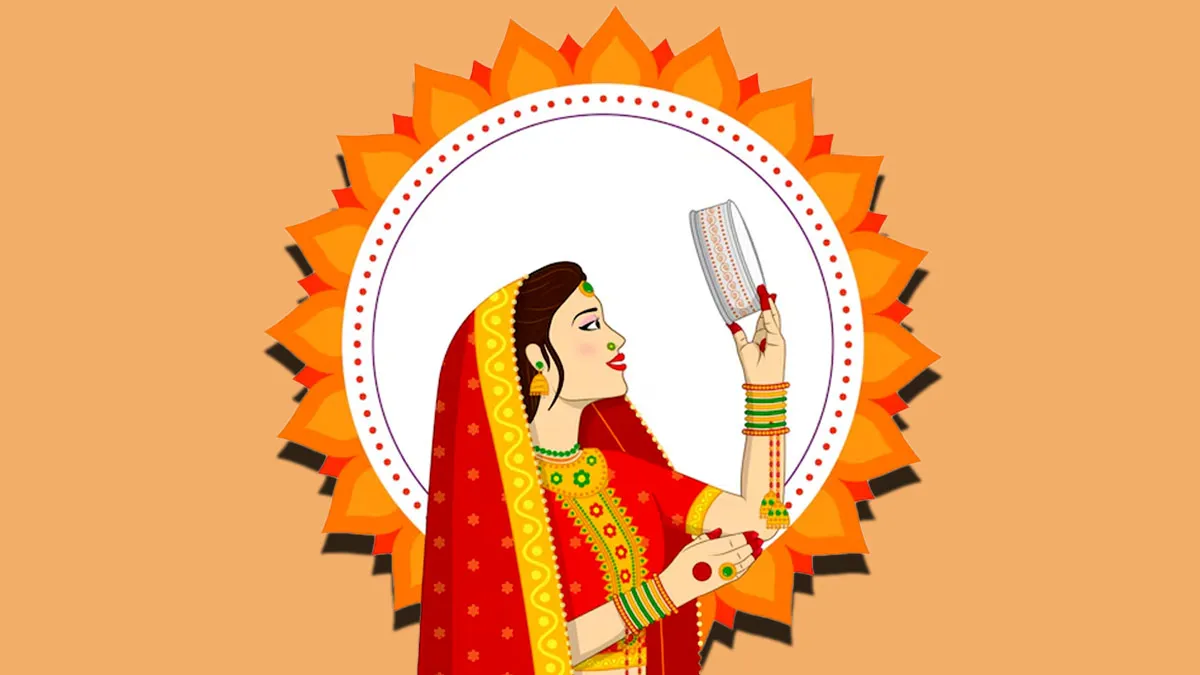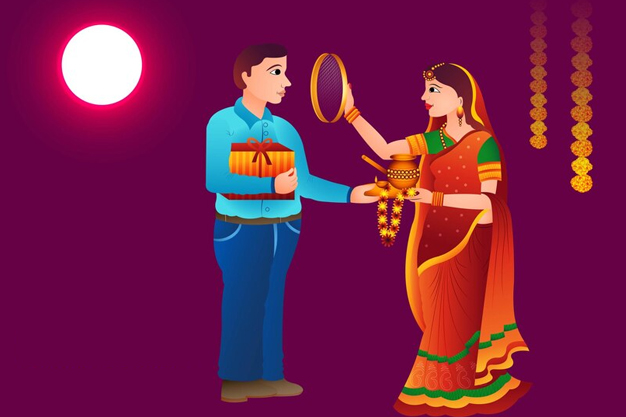
A Public Interest Litigation (PIL) demanding a law to enforce Karwa Chauth rituals on all women, with penalties for non-compliance, was dismissed as withdrawn with costs by the Punjab and Haryana High Court. The petitioner claimed that some groups of women, particularly widows, were excluded from participating in the rituals. He sought government intervention to ensure universal observance of the festival.
However, this raises an important question: why should a man have the authority to dictate whether a woman follows a tradition or not? Isn’t it her choice to decide whether she wants to fast for her husband?
The Punjab and Haryana High Court recently declined to hear a Public Interest Litigation (PIL) seeking a law to mandate Karwa Chauth celebrations for women, regardless of their marital status. The Bench, comprising Chief Justice Sheel Nagu and Justice Sumeet Goel, dismissed the petition with a token cost of ₹1,000, directing it to be paid to the Poor Patient Welfare Fund at PGIMER, Chandigarh. The Court stated that the issue falls exclusively under the legislature's purview and, therefore, refused to intervene, as reported by the Bar and Bench.

As per the Court's January 22, 2025 order, the petitioner raised concerns about discrimination against certain groups of women, particularly widows, who are traditionally excluded from participating in Karwa Chauth. The petitioner argued for a law requiring all women, regardless of marital status, to observe the festival's rituals, which include a day-long fast (from sunrise to moonrise) for the safety and well-being of their husbands. He further suggested penalising women who fail to comply with these proposed rules.
After the Court made its unwillingness to entertain the plea clear, the petitioner’s counsel requested to withdraw the case. While allowing the withdrawal, the Court imposed a cost of ₹1,000.
The petitioner, Narender Kumar Malhotra, appeared in person alongside his counsel, advocate Satish Chaudhary.
Don't Miss: Iraq Lowers Age of Marriage For Girls To Nine, Sparks Outrage
Karwa Chauth is a beloved festival in India, celebrated by married women who fast for their husbands' health and long life. For many, it is seen as a heartfelt tradition, a day to honour marital bonds through love and devotion. Women prepare for the occasion, dressing in traditional attire, applying mehndi, and gathering with family and friends to mark the festivities. For these women, Karwa Chauth is not just a ritual; it is a meaningful way to express love and commitment to their partners.
However, the festival also highlights deeply ingrained patriarchal norms that place women in the role of caregivers, tying their identity and worth to the well-being of their husbands. The expectation that only women fast perpetuates unequal gender dynamics, where men are rarely held to similar standards of sacrifice or devotion in relationships. This can lead to societal pressure on women to conform, making the ritual feel more like an obligation than a personal choice.

Don't Miss: Divorce Facts 101: If A Man Is Unemployed But The Wife Earns, Will She Get Alimony? Legal Expert Explains
While for some women, Karwa Chauth holds significant emotional value, the idea of mandating it as a compulsory practise, as suggested in the recently dismissed PIL, is problematic. Such a law would undermine the very essence of choice and agency, turning a voluntary act of love into a forced societal obligation. A man dictating whether women should observe the fast or not is unnecessary and disregards women’s autonomy. Ultimately, Karwa Chauth should remain a personal decision, whether to participate or not, free from legal mandates or societal pressure.
Keep reading Herzindagi for more such stories.
Credits: FREEPIK
Also watch this video
Herzindagi video
Our aim is to provide accurate, safe and expert verified information through our articles and social media handles. The remedies, advice and tips mentioned here are for general information only. Please consult your expert before trying any kind of health, beauty, life hacks or astrology related tips. For any feedback or complaint, contact us at [email protected].